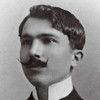“ The longer I study, Ernest, the more clearly I see that the beauty of the visible arts is, as the beauty of music, impressive primarily, and that it may be marred, and indeed often is so, by any excess of intellectual intention on the part of the artist. ”
Oscar Wilde, Intentions (1891). copy citation
| Author | Oscar Wilde |
|---|---|
| Source | Intentions |
| Topic | beauty music |
| Date | 1891 |
| Language | English |
| Reference | |
| Note | |
| Weblink | http://www.gutenberg.org/files/887/887-h/887-h.htm |
Context
“Nay, it is rather the beholder who lends to the beautiful thing its myriad meanings, and makes it marvellous for us, and sets it in some new relation to the age, so that it becomes a vital portion of our lives, and a symbol of what we pray for, or perhaps of what, having prayed for, we fear that we may receive. The longer I study, Ernest, the more clearly I see that the beauty of the visible arts is, as the beauty of music, impressive primarily, and that it may be marred, and indeed often is so, by any excess of intellectual intention on the part of the artist. For when the work is finished it has, as it were, an independent life of its own, and may deliver a message far other than that which was put into its lips to say. Sometimes, when I listen to the overture to Tannhäuser, I seem indeed to see that comely knight treading delicately on the flower-strewn grass, and to hear the voice of Venus calling to him from the caverned hill.”
source


